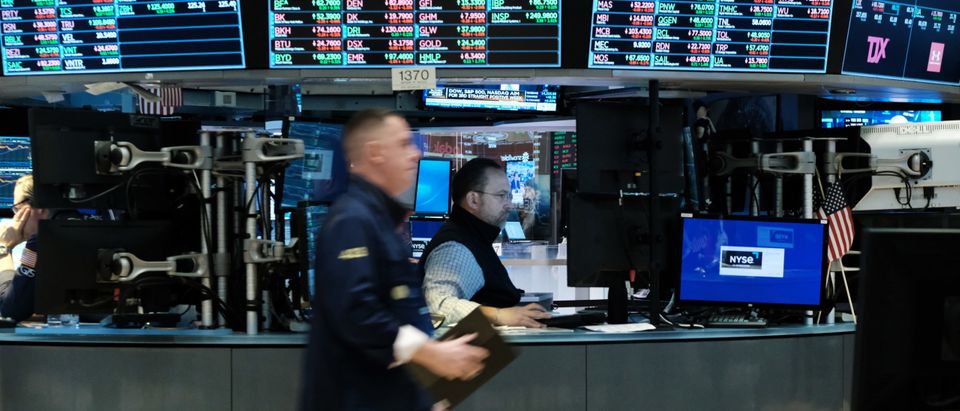The yield on a 5-year Treasury note soared past the yield on a 30-year Treasury note Monday, potentially signaling weakness in the economy, according to economists interviewed by the Daily Caller News Foundation.
The 5-year Treasury note increased to 2.64% Monday morning, while the 30-year yield dipped to 2.60%, according to CNBC. The last time an inversion like this occurred was in 2006, shortly before the 2008 financial crisis.
The recent movement in the bond market may signal possible fears of a recession, as well as reactions to the recent hikes in interest rates, E.J. Antoni, a research fellow at the Heritage Foundation, told the DCNF. (RELATED: Biden’s Job Approval Plummets To New Low)
The U.S. 5-30 treasury curve is within a single basis point of inversion. Put simply, it’s basically there. pic.twitter.com/ZbpVCAqdF1
— David Ingles (@DavidInglesTV) March 28, 2022
“Right before a recession, if people are worried about debtors making the coupon payments on their bonds, then they will be less likely to want to hold the short-term debt,” Antoni told the DCNF. “The other issue now is that everyone knows that rates will go up and will continue to go up.”
“This seems like the icing on the cake,” Antoni added. “We’ve had a lot of bad signs pointing to a recession, and the only way to get all of the money out of the economy that is needed to control inflation is to cause a lot of short-term pain.”
Some economists don’t see the inversion as a recession signal but rather a reflection of the Federal Reserve Bank’s inability to hike rates to combat inflation.
“Prolonged, Easy Money policy like Quantitative Easing has distorted the yield curve so much in my mind it is a less reliable economic indicator,” Clara Del Villar, director of Senior Initiatives at FreedomWorks Foundation, told the DCNF, adding that recent stock market volatility and turmoil created by the war in Ukraine also contributed to the inversion.
“The U.S. economy remains in a much stronger position (low unemployment, strong GDP, lots of job opportunities) than the last time the Fed was aggressively tightening in 1994,” Del Villar told the DCNF. “So I don’t see our nation diving into a recession anytime soon.”
Meanwhile, investors consider the relationship between the 2-year and 10-year yields to forecast a recession more accurately, Charles Beauchamp, a finance professor at Mississippi College, told the DCNF.
“For the past 50 years, the 2-10 inversion has been 100% accurate in predicting recessions using a 24-month post-inversion window yet slightly less accurate if using only a 6-month window,” Beauchamp told the DCNF.
Beauchamp told the DCNF that the lower 30-year Treasury yield would signal, at minimum, a new level of weakness in the economy.
All content created by the Daily Caller News Foundation, an independent and nonpartisan newswire service, is available without charge to any legitimate news publisher that can provide a large audience. All republished articles must include our logo, our reporter’s byline and their DCNF affiliation. For any questions about our guidelines or partnering with us, please contact licensing@dailycallernewsfoundation.org.


